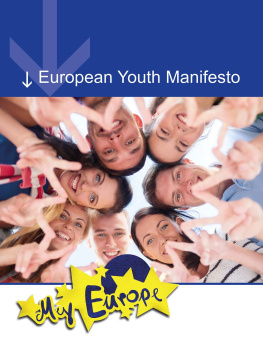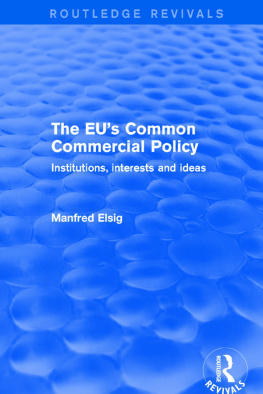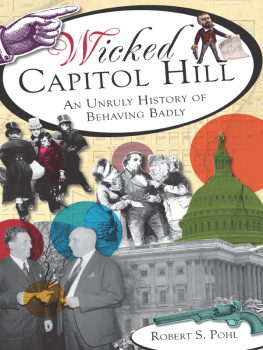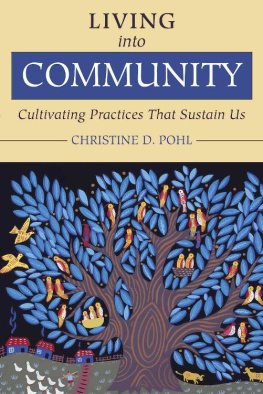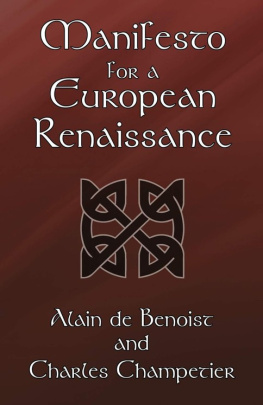About the European Youth Manifesto
Give a voice to young Europeans, this is our principle. We believe that the workshops we organize all over Europe are just one way to give students a substantial role in Europe. We therefore decided to additionally offer them the opportunity to write this Manifesto.
Commonly, such a document is a public declaration of aims as issued by a government, political party or a movement. This European Youth Manifesto is the voice of the young Europeans. It has been written freely by students from seven countries. It gathers their opinions and views about what is going wrong in Europe and how to make our continent a better place in the future.
In order to focus efforts on issues that really matter to young people we organized a poll and asked about 350 students which topics they consider most important for the future of the European Union. Out of the 20 possibilities we suggested, they selected the following 10: Human Rights, Culture, Education, Employment, Energy, Environment, Immigration, Language, Security and Violence & Crime.
The next step was to find the writers of this manifesto, the students who would become the messengers of their European fellows. We therefore invited the winners of all writing contests we organized through our My Europe Workshops. We then divided these 30 students in ten working groups (one group for each topic) according to their preferences and making sure that the three members of each group have different nationalities.
Every group then drafted a chapter of three to five pages about their own topic. In order to do this, each student dealt with one sub-topic directly related to the main topic of the group. We let the students write about whatever they considered to be important. The only condition we set was to present at least one specific problem, as well as to suggest young and innovative solutions in order to solve this or these problem(s).
Imprint
Editors: Manfred Pohl, Frankfurter Zukunftsrat e.V.
Design: www.obsentic.de
Concept: Carina Feuerriegel
Pictures: www.istockphoto.com, Cover: www.fotolia.com
Print: Westkreuz-Druckerei Ahrens KG
Publisher: Westkreuz-Verlag GmbH
First edition, 2013
E-Book edition
2013 Westkreuz-Druckerei Ahrens KG
ISBN 978-3-944836-09-6
Foreword Viviane Reding
I am glad that I accepted the patronage of the Zukunftsrats international youth project My Europe in 2011 because it places trust in young people with fresh ideas. It is now encouraging to see how many of them have gained new perspectives by talking and writing about European topics.
This helps to show the important role young people play in shaping the future of our Union. I congratulate all the authors of the European Youth Manifesto for this comprehensive and rich contribution to the debate on what that Union should look like.
I have always been eager to hear directly from citizens about their dreams and wishes for Europes future. That is why I am holding Citizens Dialogues across the EU. And I am interested in the voice of the young generation. It is they who will shape the Europe of tomorrow.
Next year will be decisive. At the European Parliament elections in May, voters will have a real choice on what kind of Europe they want. It is important to use this chance. I appeal in particular to the many young people who will have this opportunity for the first time.
The manifesto clearly shows that you have a lot of good ideas. So, challenge your candidates for the European Parliament, encourage a debate ahead of elections and hold people to account afterwards. That is what democracy is about. It is taken for granted at local and national level. It must also become the norm at European level.
European institutions and decision-making processes have to become more democratic and transparent. After all, more and more decisions that affect peoples lives directly are taken at European level. At the same time, people need to know about their rights, as you mention in the manifesto. We must improve young peoples knowledge of Europe and their rights as EU citizens. This will enable them to take full advantage of the benefits Europe has to offer and to help determine its future course.
Youth is a time when all dreams look achievable. Victor Hugo said: There is nothing like a dream to create the future. Lets do both have a dream and make it a reality for Europe.
Viviane Reding
Vice-President of the European Commission responsible for Justice, Fundamental Rights and Citizenship
Foreword Prof. Manfred Pohl
I am glad that I accepted the patronage of the Zukunftsrats international youth project My Europe in 2011 because it places trust in young To speak about Europe to Europeans is not enough. We also need to listen to them. And this is particularly true concerning the youngest voices. Indeed, they are the frailest but yet most important ones for our future. The authors of this European Youth Manifesto today aged 15 to 22 start raising their voices, and their generations voice will grow stronger every day. In fact, they are the ones who will have leading positions by 2030 and will determine our common future in Europe.
We certainly need a new generation of leaders in politics, business and society who respect human rights, protect the environment and fight corruption. We need new role models who tell the truth, accept diversity and tolerate differences. And we need leaders who act in line with their principles.
The youth of today wants a different, better Europe. They want unity, truth and well-being for citizens. But they have no lobby. That is why the Frankfurter Zukunftsrat started the youth initiative My Europe. We wish to encourage teenagers to express their visions and hopes for the future. We want to offer the youth a platform where they can exchange ideas and get prepared for their professional and personal lives.
We believe that Europe is all about exchange, cooperation and communication between people. This is what the authors of this Manifesto experienced while writing their calls for action; and they certainly came up with highly captivating claims for our common future in Europe. This Manifesto shows what is important to them, what their concerns and their hopes are. In order to build the best possible future, we need to pay attention to them.
Prof. Manfred Pohl
Founder and CEO
Frankfurter Zukunftsrat e.V.
Suzanne Angliviel, France
Davide Cannata, Italy
Smaranda Vedrasco, Austria
Human Rights
The need for an international legal framework on human rights arose largely in response to the massive destruction and loss of human life, as well as other social processes and upheavals in the first part of the 20th century. It is also a result of the development of international law. The Universal Declaration of Human Rights adopted in 1948 by the newly established United Nations became the essential blueprint for all subsequent legal treaties around the world.
The Charter of Fundamental Rights of the European Union is such a document, which, in addition to the basic human rights, shows how the thinking on human rights has evolved and now includes aspects of human existence that would have been unconceivable a century ago.




